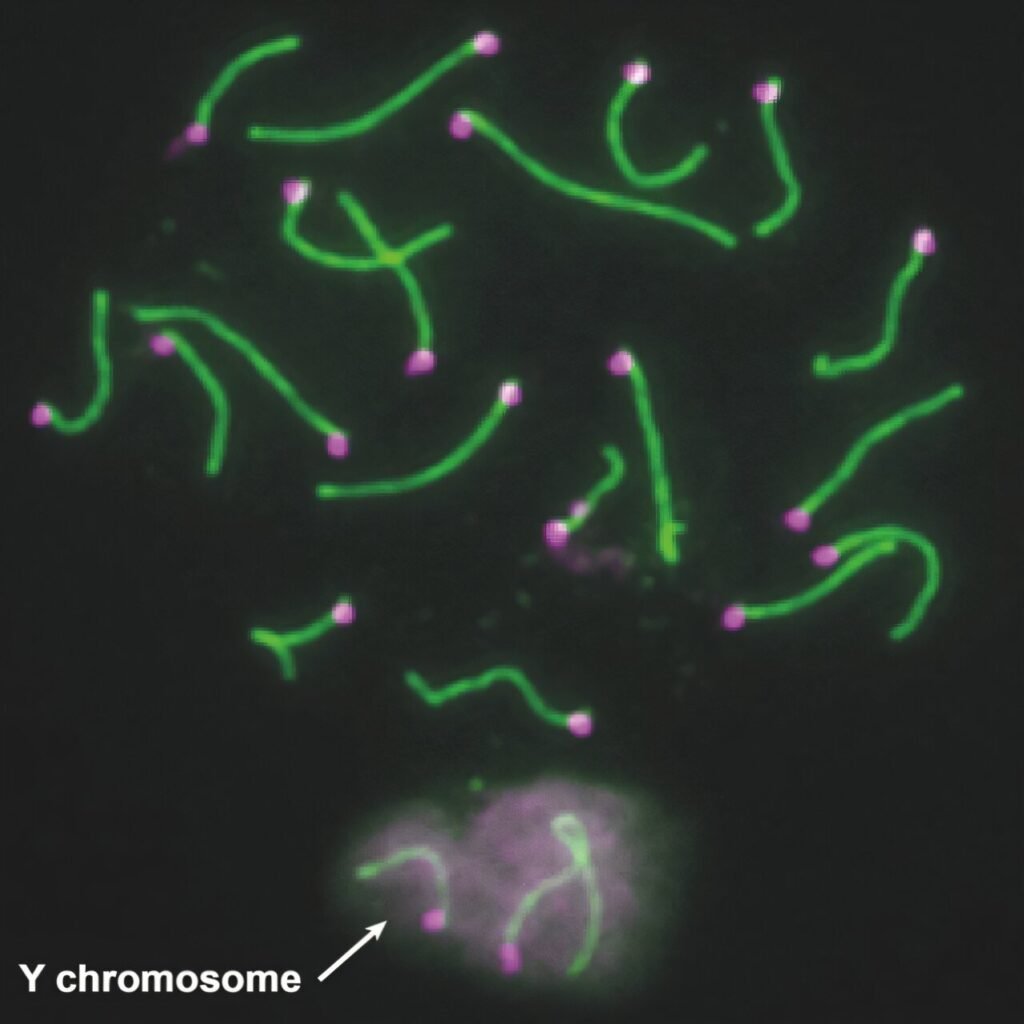A recent study conducted by researchers at the Crick Institute has shed light on the role of Y chromosome genes in male fertility in mice. This groundbreaking research could potentially help in understanding the causes of male infertility and pave the way for future interventions to assist couples struggling with conception.
Humans typically have 23 pairs of chromosomes, with one pair being sex chromosomes (XX for females and XY for males). These chromosomes contain genes, which are sections of DNA responsible for various functions in the body. While the Y chromosome has been known to be essential for male fertility, the specific genes and their functions have remained largely unclear.
In a study published in the journal Science, the research team at the Crick Institute created 13 different mouse models, each with a different Y gene removed, to investigate their fertility. The researchers analyzed the reproductive capabilities of these mice, including the number of offspring produced, the quantity and quality of sperm, and the overall fertility of the mice.
The results of the study revealed that several Y genes play a crucial role in male fertility. Removal of these genes led to a decrease in sperm production, failure to generate sperm stem cells, or abnormalities in sperm shape and movement. Interestingly, the study also found that certain genes only had an impact on fertility when removed in combination with other genes, highlighting the complex interactions among Y chromosome genes.
One particular group of genes in a region called AZFa, known to be associated with severe cases of male infertility in humans, was shown to be essential for normal sperm production in mice. The researchers emphasized that multiple Y genes work together to ensure fertility, and the loss of multiple genes simultaneously could lead to infertility.
Beyond their role in sperm generation, some Y genes were also found to be active in other organs such as the heart and brain. Additionally, the researchers noted that as men age, they may experience loss of Y chromosomes in blood cells, which has been linked to conditions like Alzheimer’s disease and cancer. Further research is now underway to explore the impact of Y gene deletions on other organs in mice.
Jeremie Subrini, a Postdoctoral Research Assistant at the Crick Institute and lead author of the study, highlighted the importance of understanding the role of Y chromosome genes in male fertility. He emphasized that the Y chromosome, long misunderstood and underestimated, plays a critical role in adult health and fertility.
James Turner, Principal Group Leader at the Crick Institute and senior author of the study, emphasized the significance of the findings in addressing male infertility. He stressed the need for further research to sequence the Y chromosome in more individuals to uncover potential genetic causes of male infertility and explore potential interventions, such as gene replacement therapy, to assist couples in conceiving through IVF.
The study provides valuable insights into the complex interplay of Y chromosome genes in male fertility and opens up new avenues for research and potential treatments for male infertility. The findings underscore the importance of understanding the genetic factors contributing to infertility and developing targeted interventions to help couples struggling to conceive.


